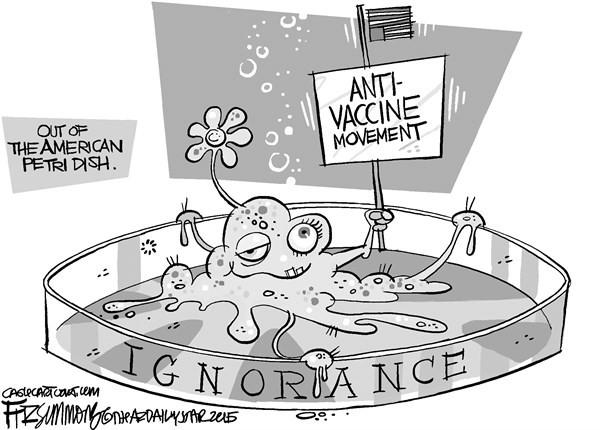Of the many modern precedents that the 2016 election has set, one of the most important will be the elevation of subversion as a campaign theme.
When compared to the elections of the last several decades, the claim “I’m against the entire system” has reached a new level of potency in propelling campaigns and voters this cycle.
Of the four current candidates still getting consistent media coverage, three of them—Gary Johnson, Libertarian; Jill Stein, Green; and Donald Trump, Republican—have devoted at least as much of their campaign to detracting from the current system as they have building themselves up as a viable alternative.
Hillary Clinton, the Democratic nominee, has tried to bill her experience with a maligned system as an asset, to less-than-resounding results.
While this strain of anti-establishment diction is as American as apple pie, it’s problematic that this attack on widely respected norms is also an attack on policies that are arguably very valuable for the public wellbeing.
RELATED: It’s too late for Republicans to start distancing themselves from Trump
A skeptical view of the status quo is crucial for winnowing out bad institutions and policies, as candidates this year have done in excess, but it also tends to target helpful institutions and policies out of sheer negativity or paranoia.
This trend to “throw the baby out with the bathwater” is embodied in the candidates’ stances on an important public health issue: vaccinations.
In their blanket stance against the political “establishment,” Johnson, Stein and Trump have each unfairly criticized mandatory vaccinations.
While each has a different rationale, the same result is dismissal of a valuable public policy for no good reason.
Hillary Clinton supports a policy that’s also supported by scientific and public health research.
Inoculation against fatal diseases played a crucial role in the birth of the U.S. Within the 1777 continental force camps in Valley Forge, Pennsylvania, historians have determined that after inoculation with the smallpox virus, death rates among rebel soldiers fell precipitously.
This process of inoculation was a precursor to the modern vaccines that, in addition to education campaigns and improvements in technology, eradicated smallpox from the U.S.
In the next few centuries, other illnesses that ravaged populations with disfigurement, illness and death were also snuffed out by advancements in public education, technology and vaccination.
This progress for public health was disrupted by what would become a hallmark in scientific fraud and public fear mongering.
In 1998, prominent British medical journal The Lancet published a paper by Andrew Wakefield whose findings—that the MMR (measles, mumps and rubella) vaccine is associated with increased diagnosis of autism in young children—have been consistently exposed as fraudulent, yet they are tirelessly peddled to a fearful, public audience.
RELATED: Dull dads debate dangerously in Tuesday’s vice presidential showdown
Even after multiple studies exonerated vaccinations and reinforced their status as innovations that benefit public health without any association with increased rates of autism, candidates still rekindle the report’s debunked ideas to wage attacks against mandatory vaccination policies.
Unlike most issues that are hotly debated, the presence of such skepticism on the subject of vaccines has a tangible impact on people’s safety.
Formerly eradicated diseases like measles became national headlines last year when the virus broke out in multiple states, an event that researchers associated with decreased rates of vaccination and calls for larger exceptions to mandatory policies based on nothing more than paranoia.
The three “subversive” candidates in this election season have presented questionable arguments and rationale on the vaccination issue.
Donald Trump, apparently lending credence to anecdotes of children being diagnosed with autism shortly after receiving a vaccine, has transparently made an appeal to fear at the expense of public health.
Gary Johnson, who agrees that the scientific literature is correct on the subject of vaccines’ benefits for public health, claims that people’s ability to defer from receiving a vaccine is a “local issue”—even if it means that once-eradicated diseases might make a comeback.
Jill Stein, who has admitted that vaccines have made a “huge contribution to public health,” has echoed language and arguments by conspiracy mongers, criticizing mandatory vaccinations as a part of the industrial pharmaceutical complex’s agenda against Americans.
The discussion of certain medical exemptions for vaccinations should certainly be on the table, as well as criticism of private corporations’ stake in the distribution of drug technologies.
But the fact that mandatory vaccination has resulted in major benefits for society and minimal—if any—costs shouldn’t be so publicly challenged by candidates who should know better.
The only candidate who has used language that doesn’t stoke citizens’ fear or paranoia on the issue of vaccines, and avoids the attendant public health problems that result, is Hillary Clinton.
The “subversive,” immature language of the other candidates leaves the public vulnerable to mass paranoia and the potential return of previously eradicated diseases.
Follow Isaac Rounseville on Twitter.









